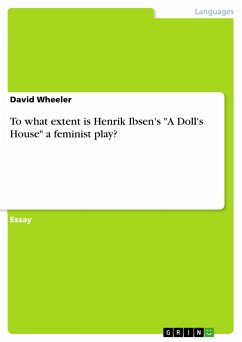Piano was the nineteenth-century status-symbol and the epitome of the domestic bourgeois ideology. Learning to play the piano was a necessary part in the upper-class education. Also, the piano could provide the married woman with a rare possibility for an artistic escapade from the restraints of her gendered identity. Henrik Ibsen uses the motif of piano and piano music most elaborately in three dramas: A Doll House, Hedda Gabler and John Gabriel Borkman, developing from Nora's tarantella dance to Borkman's Danse Macabre. Ibsen's Piano focuses on these three dramas, examining how the dramatist uses these motifs both as dramatic tools essential for the structure of the drama, as well as the epitome of the cultural forces and ideologies of the nineteenth-century bourgeoisie and the characters' means by which they attempt to transcend those forces. Ibsen's Piano brings Ibsen into a larger context of nineteenth-century literature, music and studies of private life. Its interdisciplinary perspective addresses literary and cultural scholars as well as musicologists and feminist scholars.
Bitte wählen Sie Ihr Anliegen aus.
Rechnungen
Retourenschein anfordern
Bestellstatus
Storno








